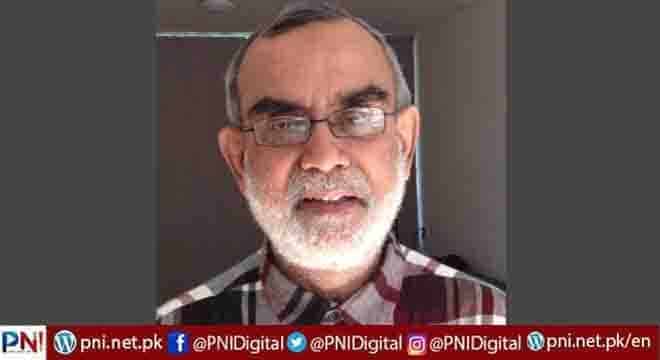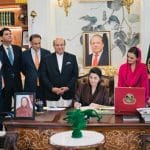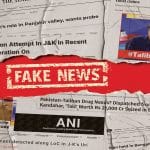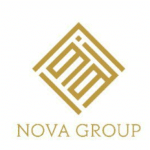When we talk of social change in Pakistan, we notice an acute sense of helplessness among the educated classes in Pakistan. It is surprising that on the one hand, we equate education with advanced political consciousness, and as a key to prosperity and democratic rule, and on the other hand, our educated class believes that power, not knowledge is the cure for all our social ills. One wonders what is missing from the repository of knowledge of our educated classes.
This question reminds me of a very interesting encounter with Dr. Mahbub ul Haq in UNDP’s office at Saudi Pak Tower in the 1990s. Dr. Haq was narrating his interaction with the brightest Pakistani students and young scholars from Harvard, MIT, and Boston University who invited him for a talk on Pakistan. Hundreds of young Pakistanis in the hall attentively heard his hour-long lecture and at the end of the talk, there was an intense discussion during the question and hour session. Towards the end, Dr. Haq told his audience that he had answered all their questions and now he wanted them to answer only one question from him, “how many of you will go back to Pakistan?”. Dr. Haq said that only one hand was raised out of almost 400 people in the hall.
There was a burst of laughter among my UNDP colleagues. Dr. Haq waved his hand and said, “don’t laugh, listen to my next question”. He next asked the participants why they did not want to go back. The answer was unanimous. “We don’t expect to be treated fairly”. The irony of our system of knowledge is that it shows us the difference between the fair and unfair but does not show us the way to change the unfair world. Our educated class is so bitter and frustrated that it has started seeing conspiracies buried under every brick in the wall.
However, good things are happening in Pakistan and there is a parallel stream of knowledge generated in the field and ignored by our brightest and highly accomplished minds. We don’t respect the knowledge generated by our working people because we suffer from one fundamental flaw, we don’t respect the poor. There are very few academics, public opinion makers, and policy analysts who see the value of the knowledge possessed by the toiling masses. One such person was Varindra Tarzie Vittachi, who in his story A man named Khan in Newsweek on 5 January 1981 described the remarkable success of UNICEF’s Mahaveli Ganga project on poverty alleviation led by Shoaib Sultan Khan.
He mentioned that the unique feature of the project was that Mr. Khan is ‘A rural development expert who lives in the village and connects people with institutions’. Learning from the people is possible if we know that knowledge is not synonymous with formal education and learning from people takes place not through literacy but humility. It is also important to know that formal education equips students with technical knowledge, but social knowledge, which consists of values, financial survival strategies, and local priorities and assets comes from the community. Without combining the community’s experiential knowledge with experts’ technical knowledge barriers in the way of social transformation cannot be crossed.
Akhter Hamid Khan also mentioned the value of community knowledge in his article People of Orangi where he mentioned that he got depressed after taking his daily dose of stories from the newspapers as a newspaper junkie. It was only his daily interaction with the people of Orangi that restored his optimism. People in the low-income settlements of Pakistan like the people of Orangi had their roots deep in the ground, that is what enabled them to survive under very adverse circumstances, but they embraced the winds from East and West without any prejudices. People of Orangi deeply valued modesty, frugality, and hard work but they eagerly learned new skills, and new ways of doing business, and dealing with the government.
Their values gave them a sense of meaning and their technical knowledge provided the means. Confusing these two forms of knowledge is a recipe for chaos and disaster.
Abdus Sattar Edhi’s example gives us a profound understanding of the difference between knowledge as a source of meaning, and knowledge as an instrument. Our values carry the knowledge that provides us with meaning. These values in Schumacher’s words are easy to understand and difficult to follow. When we cannot muster our inner power to follow the difficult path, we start looking at outside power to compensate for our moral deficit. That is why Akhter Hameed Khan used to say that Pakistan’s problem is moral, not economic. Moral values are simple and easy to teach, and 16 year schooling is not needed to transmit these teachings. Edhi’s mother, who was an illiterate person used to give him two paisas every day with the instruction “spend 1 paisa on yourself and 1 on someone in need”. This is education in solidarity, practicality, and compassion. Edhi’s presidential address in the NGO Forum held before the Donor Forum presided by Kofi Annan after the 2005 earthquake in Pakistan consisted of one line Amal sey zindagi banti hey Jannat bhee Jahannem bhee meaning that your actions make your life a paradise or a hell.
Sumaira Gul, through her recent publication The Slums Culture, has added to this extremely valuable body of knowledge. The book has been published by Romail House of Publications, Rawalpindi, and gives a firsthand account of people living in the informal settlements in Pakistan. As noted by many renowned scholars, 90 percent of our population depends on the informal economy. Perween Rahman noted that people in these settlements create most of their infrastructure themselves. The best way to know about them was to become Ninja Turtles of Mapping. Sumaira Gul is one of those Ninja Turtles who is drawn the map of an informal settlement in Rawalpindi in words. The book has received tributes from international and national development experts and has been recommended for the briefing of development experts and teaching at the universities. If we want to change, we need to learn from the knowledge in the field.
Follow the PNI Facebook page for the latest news and updates.









